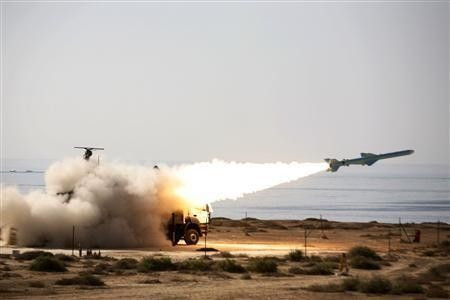Iran Sanctions: France Demands Asset Freeze, Oil Embargo

France is urging the European Union (EU) to impose stricter sanctions against Iran in an effort to halt the Islamic Republic's nuclear power program.
France... wants sanctions toughened and the president [Nicolas Sarkozy] has made two concrete proposals on that front -- the first being the freezing of Iranian central bank assets, a tough measure, and the second an embargo on Iranian oil exports, French Foreign Minister Alain Juppe said on French television.
While Iran has repeatedly said that its developing nuclear program is only designed for energy production, Juppe is certain that Iran is attempting to build nuclear weapons. A report from the International Atomic Energy Agency in November revealed as much, and world powers are hoping that squeezing Iran economically through sanctions will end the country's nuclear ambitions.
Juppe noted that new E.U. sanctions should be agreed upon by January 30, as a way to show the continent's resolve against Teheran.
The U.S. Congress voted to that effect and the President of the United States has just approved the law. We hope that the Europeans, by Jan. 30, take an equivalent measure to show our determination, he added.
The new U.S. sanctions will limit foreign refineries from buying Iranian crude oil, which would not just hurt Iran economically but also have an effect on countries like Greece that still depend on Iranian oil. The sanctions were signed into law by President Barack Obama on Saturday and will go into effect in a number of months.
Turkey is currently considering asking the United States for an exemption waiver for Tupras, a Turkish petrochemical company that owns all of the country's crude oil refineries. About 30 percent of Turkey's oil comes from Iran and is processed by Tupras, according to Reuters.
It is too early to say if Turkey will seek a waiver. We are evaluating the content of the new law. Once we have evaluated it we will make a decision, a Turkish official told the news outlet.
But Turkey's position all along on sanctions is that only U.N. sanctions are legally binding.
War of Words
Following the test-firing of long-range missiles on Monday, Iran made verbal threats against United States' navy on Tuesday. Advancing its normal posturing, Iran said it would take action if an American aircraft carrier moved into the Persian Gulf.
Believed to be the USS John C Stennis, the carrier was moved during Iran's 10-day long military drills last week.
Iran will not repeat its warning... the enemy's carrier has been moved to the Sea of Oman because of our drill. I recommend and emphasize to the American carrier not to return to the Persian Gulf, army chief Ataollah Salehi stated.
I advise, recommend and warn them over the return of this carrier to the Persian Gulf because we are not in the habit of warning more than once.
Additionally, Iran has stated that it could shut down the Strait of Hormuz, the shipping lane through which 40 percent of the world's oil supply travels.
© Copyright IBTimes 2025. All rights reserved.





















